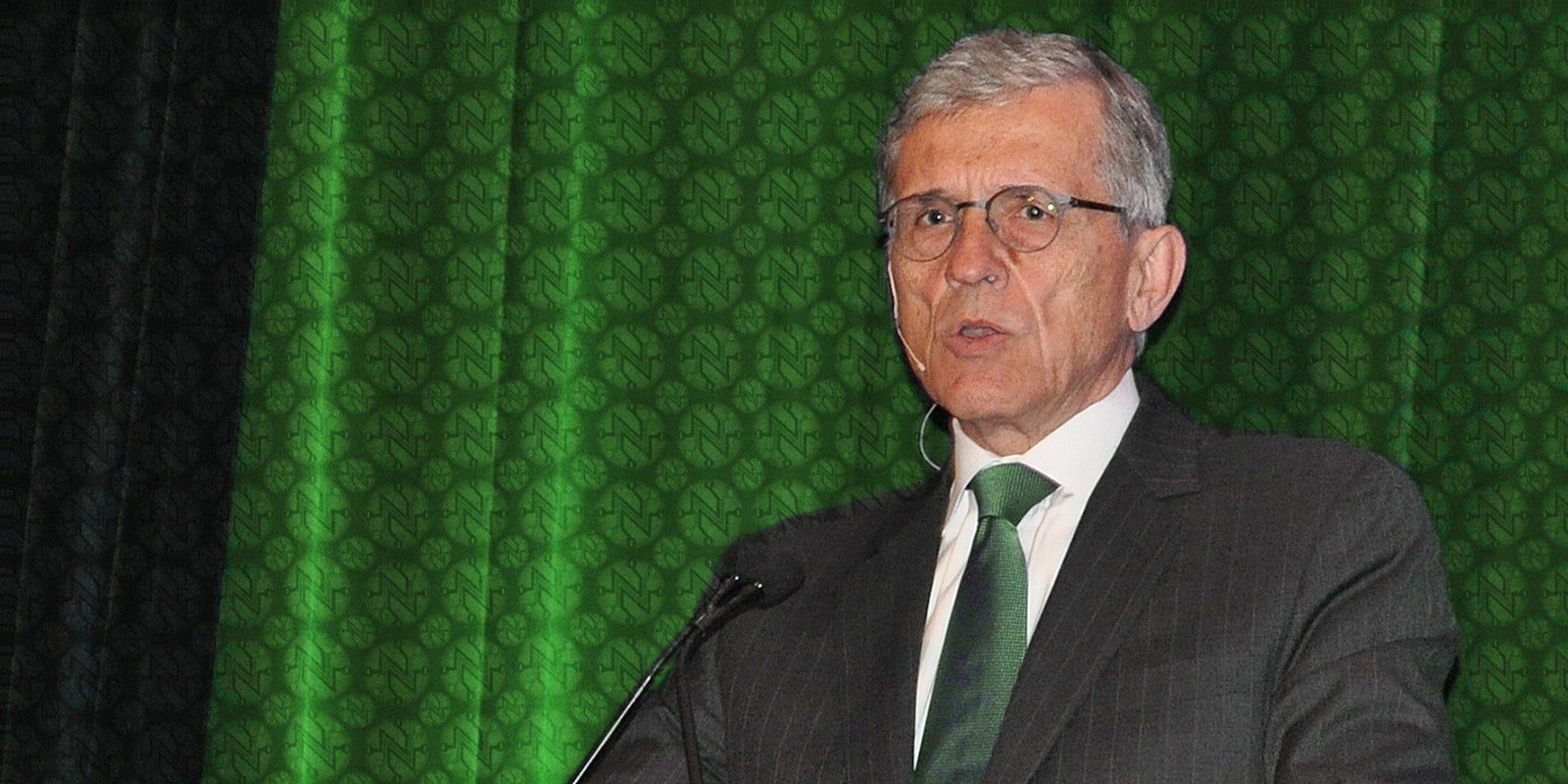A top Democrat in the Senate has asked the country’s largest Internet service provider to more strongly support net neutrality.
Sen. Patrick Leahy (D-Vt.) on Monday called on Comcast to reject any plans to implement “fast lanes,” also known as “paid prioritization,” on the Internet.
Currently, the Federal Communications Commission (FCC) is considering rules for net neutrality, the principle that all data should be delivered to Internet users at the same rate.
“One area of particular concern to me, as to millions of others, is the risk of paid prioritization agreements through which websites could be charged for priority access over the Internet,” wrote Leahy in a letter to David Cohen, Comcast’s executive vice president, on Monday. “These types of arrangements pose a significant threat of dividing the Internet into those who can afford to compete and those who cannot.”
A federal court struck down the FCC rule making it illegal for Internet service providers to offer preferential treatment in January. Since then, the FCC has received over 3 million public comments on the issue, the vast majority of them in strong support of net neutrality protections.
At the moment, the Commission is poised to choose between two basic proposals. It is unclear when the FCC will make its decision, or what the new net neutrality rules will look like.
The first proposal, opposed by Sen. Leahy and open Internet advocates, would allow ISPs to create “fast lanes” and profit by discriminating between websites’ data. Essentially, ISPs would begin charging content providers, such as Netflix, to deliver content more quickly to users—a fee that would inevitably be absorbed by consumers.
The second proposal seeks to reclassify Internet service as a public utility under Title II of the Communications Act of 1934, thereby granting the FCC the authority to enforce net neutrality under the law.
“Allowing the Internet to become a two-tiered system of ‘haves’ and ‘have-nots,’ controlled by a small number of corporate gatekeepers, would destroy everything that has made it one of the greatest innovations in human history,” Leahy wrote.
Comcast asserts that it abides by net neutrality principles, which it is required to do as part of its 2011 acquisition of NBCUniversal.
“To be clear, Comcast has never offered paid prioritization,” Cohen wrote in a blog post earlier this year. “We are not offering it today, and we’re not considering entering into any paid prioritization creating fast lane deals with content owners.”
Leahy said that he welcomed Comcast’s assertion, but remained concerned that market incentives may drive Comcast, which is currently pushing to acquire Time Warner Cable, and other ISPs to change their position in the future.
“In a world of increasing broadband consolidation, Internet customers and Internet content providers face fewer options than ever to gain access online. A network that discriminates cannot be checked by market forces when customers and content providers have few—if any—viable alternatives to choose from.”
Sen. Leahy and a variety of open Internet groups fighting for net neutrality, such as Fight for the Future, haven’t always seen eye to eye. The senator is responsible for introducing the widely unpopular PROTECT IP Act (PIPA) legislation, a bill very similar to the Stop Online Piracy Act (SOPA), which would have given the government the power to shut down sites accused of infringing copyright.
Sen. Leahy to Comcast VP, re: Fast Lanes
Photo via Daniel X. O’Neil/Flickr (CC BY 2.0) | Remix by Jason Reed


